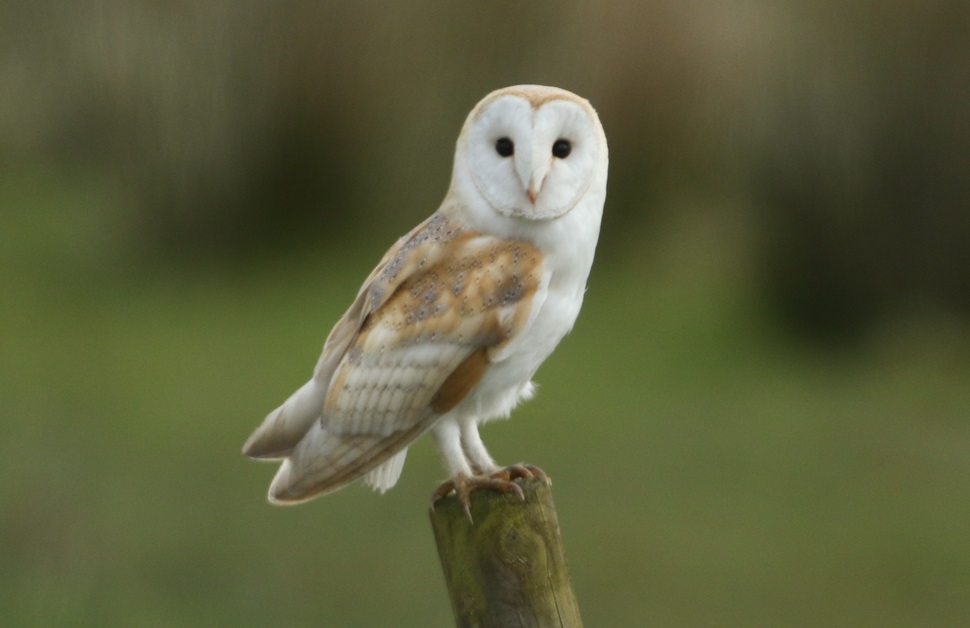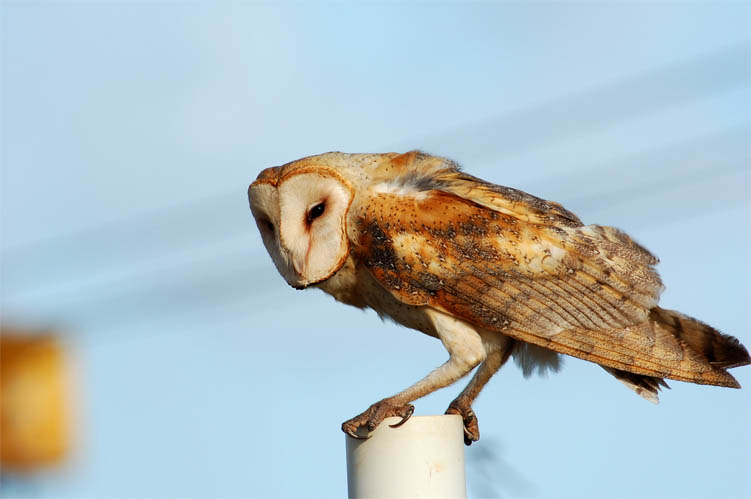Everything You Need to Know About Barn Owl Surveys
In recent years, the number of barn owls present across the UK has declined rapidly, triggered by a loss of suitable nesting sites. Although a result of multiple factors, the primary cause of such a negative impact on barn owl populations is human activity, particularly land and property developments.
Due to the effects on native barn owls, UK law was altered to integrate them within several core policies, listing them as one of many recognised protected species. More specifically, the Wildlife and Countryside Act 1981 makes it illegal for anyone to intentionally kill, capture or injure barn owls, and in addition to that, both barn owls themselves and barn owl nest sites are protected from any form of disturbance,
If you are a developer carrying out planning works that could impact barn owls or potential nest sites, it is crucial that you show consideration to them by instructing a qualified ecologist to survey your development site or property before any works begin. That way, you can ensure that no barn owls or barn owl nests are present, or if they are, mitigate accordingly to allow your planning project to move forwards.

What Happens on a Barn Owl Survey?
A barn owl survey consists of a desk study and a physical inspection of the development site for evidence of barn owl occupancy. At a fundamental level, it acts as an opportunity for a licenced and trained ecological consultant to make the necessary checks, initiate applicable changes and reflect the outcome of the assessment to the developer and the local planning authority as part of the application for planning permission.
Barn Owl Survey Methodology
In a visit to the site known as a scoping survey, the ecological surveyor will analyse the entirety of the plot of land including undeveloped areas and existing infrastructure. With an emphasis on barn owls, the ecologist will target natural and man-made features that could pose as likely roost sites for nesting barn owls and other wild birds, such as tree hollows and buildings. Any nearby rough grasslands will also be worth checking, as it is the habitat of the barn owl’s main prey such as common shrews, field voles and wood mice.
Indications of barn owls or the potential for barn owls include droppings, eggs, feathers, nest debris and the presence of live or dead barn owls. At this point, the ecological surveyor will also look for features that could house barn owls, now or in the future. All bird surveys generally involve the same types of tools and equipment, and a barn owl assessment is no different, typically featuring bags to collect poo samples, a camera, binoculars, ladders and a torch.
The outcome of the preliminary scoping survey will determine whether further surveys are needed. For example, if more information is needed, a habitat assessment will be undertaken to retrieve data surrounding the suitability of the nearby area in the eyes of native barn owls. As a last resort, an activity survey or vantage point survey will be conducted to record information about birds in flight across identified home ranges, contributing to data on the types of species, population sizes and the location of nest sites.
Barn Owl Survey Report
Following all ecology surveys, a report will be produced by the ecological consultant to detail the assessment at length. Results from the inspection will then confirm or deny barn owl occupancy and enable the ecologist to make the correct decisions, promoting the safeguarding of barn owls while facilitating future stages of the development.
Alongside further information about the barn owl assessment process, survey reports will provide suggestions of further surveys needed on the development site or property, explain mitigation measures that will allow the planning project to progress despite the presence of barn owls, and recommend that the planning department of the local council approve a planning condition once they are satisfied that barn owls and each nearby nest site is safe from development works.
Barn Owl Survey Guidelines
Producing a service of the highest possible quality and prompting results that are trustworthy and reliable is only possible through operating within the guidelines of relevant regulators and organisations. Starting with the UK government, legislation such as the Wildlife and Countryside Act 1981 and corresponding acts such as the Conservation of Habitats and Species Regulations 2017, the Natural Environment and Rural Communities Act 2006, and the Town and Country Planning Act 1990 play a role in governing barn owl surveys.
The laws listed above are then enforced by the local authorities, and applications for planning permission will not be approved unless the requirements of all relevant planning policies have been met. In assessments for barn owls and other bird species, the Department for Environment, Food and Rural Affairs (DEFRA) also contributes to ensuring a certain standard and specific considerations across all inspections, with a similar level of influence from Natural England / Natural Resources Wales.
Dedicated groups that were created with the intention of providing conservation, preservation and protection to certain animal species are also beneficial to the assessment process. In the case of barn owls, registered charity the Barn Owl Trust is a valuable source of insight. Individual locations may also possess their own trusts if they are known for occupancy of barn owls and other bird species.
When to Survey for Barn Owls
Each form of barn owl survey carries varying restrictions based on the techniques used within the assessment process. The preliminary barn owl scoping survey can be carried out any time throughout the year as part of a Preliminary Ecological Appraisal (PEA). That said, as trees will be inspected for likely nest sites, it would be advisable to plan a barn owl assessment during autumn, winter or early spring while the trees aren’t covered in leaves and hiding roosting features.
As for a barn owl activity survey or vantage point survey, it is recommended to plan for a suitable date during the latter part of the breeding season. Barn owl breeding season usually spans between March and August, with the best-suited time for a barn owl assessment occurring somewhere between mid-June and mid-July.
The Cost of Barn Owl Surveys
Rather than charging the same price for all our ecological survey services, we price up each client’s needs on a case-by-case basis, taking the size of the site or property, the scale of the development project, and the purpose of the assessment into consideration. By approaching quotes in this way, clients can be treated fairly and only pay for what they need to.
As a result of the way in which we price up our services, an assessment on potential nest sites with suspected occupancy of barn owls may vary based on the specifications of your site and project. With this in mind, we would always advise that clients contact our team for a quote. We do have a baseline price, however, starting at £599.

Take the First Step in Planning a Barn Owl Survey
From projects involving old properties in rural areas to developments on land housing trees, barn owls can appear in a variety of settings and hinder a wide range of development projects. While it is a given that barn conversions would require a barn owl survey, it doesn’t mean that plans on other forms of infrastructure don’t apply.
After several years of offering a broad selection of ecological and arboricultural services to clients all over the UK, we are suited to inspecting your site for barn owls. Demonstrating experience at every stage of the planning and development process, our team offers a full understanding of planning application criteria, planning requirements and the corresponding local authorities.
Considering Arbtech‘s aptitude in numerous areas of ecology, we can also provide further surveys if the barn owl assessment uncovers a suspected presence of other protected species. If, for example, bats or evidence of bat nest sites is found, we can send a licensed bat ecologist to the site, catering to more than one requirement and integrating the entire survey process.
Receive a Quote Instantly
Simply fill in the form on this page, give us a call, or visit our contact us page for further communication options. You can then give us details of your site and project, enabling us to determine your needs accordingly. Within 24 hours, you will receive a free quote to deliberate over, and once you instruct us to move forwards, we can plan a desirable date to attend your site for a barn owl survey.
Based on the findings of our ecological team, we will be able to provide you with effective next steps to meet the criteria of your application for planning permission and move your development to the next stage, all while supporting protected species, showing consideration to UK law and ensuring the safety of barn owls if they are found on your site.


